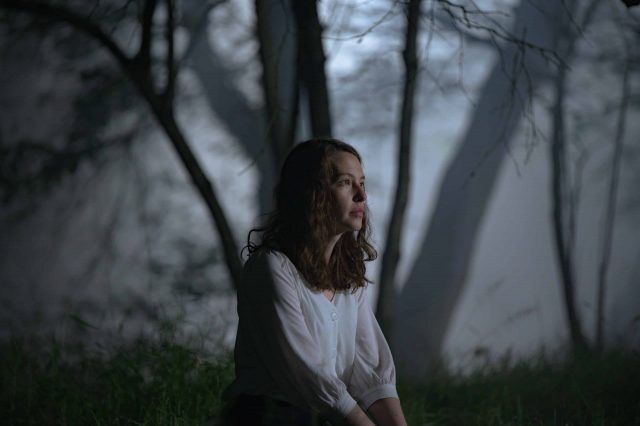The Feast: Low and Slow, by Jim Rohner

“Eat the rich” is a phrase that’s existed for hundreds of years but has risen in awareness and proliferation in the context of its appearance on signs and patches (and the occasional brick wall) in social justice protests over the last couple of years. “When the people shall have no more to eat, they will eat the rich!” Jean-Jacques Rousseau declared referring to the radical albeit metaphorical result of massive income inequality that he witnessed in a France heading toward imminent revolution. It’s a hyperbolic statement, but one that speaks to extreme reactions from people that have long been oppressed and subjugated to a breaking point. It’s dark, but it’s figurative. The phrase exists in the world of hyperbole and fantasy, and could or should never be a literal approach to oppression, right? That’s a question that exists in the subtext of The Feast, posed by writer Roger Williams and answered in macabre fashion by veteran TV director Lee Haven Jones.
The setup for the film is simple, perhaps even one so archetypical as to lull the viewer into believing that they know exactly what to expect: a wealthy Welsh family—far removed from their homebase of London, where the patriarch, Gwyn (Julian Lewis Jones), serves as a Parliamentary representative—are hosting a dinner party in rural Wales on the ancestral land of Gwyn’s wife, Glenda (Nia Roberts). The farmland that once covered the countryside was usurped by drilling interests long ago, and what stands instead in monument of the family’s accomplishments is what Pacino’s Vincent Hanna would describe as a “dead tech, post-modernistic bullshit house.” Sterile and symmetrical, the house was erected as a status symbol, looking more like it’s a viewing staged by Ikea than a home where a family lives. The black and grey of the architecture emanate the coldness of a tomb or mausoleum amongst the vibrant greens and yellows of its idyllic surroundings and indeed the family members pace its hallways like unwilling corpses, most especially embodied in the pale faces of the sons: the cosmopolitan Guto (Steffan Cennydd), and fitness fanatic, Gweirydd (Sion Alun Davies).
Preexisting tensions within the family clearly exist and they’re magnified by the arrival of Cadi (Annes Elwy), a local girl hired to assist Glenda with the preparation and serving of the business-inclined dinner. Cadi doesn’t say much, but she sees all, and her blank expression in the face of an increasing disconnect between the family members and their dinner guests is curious and unsettling, hinting towards a secret that we know will be revealed all the while raising questions about the manner of its uncovering (such as, “why is she so fascinated by that broken wine bottle and OH MY GOD what is she doing with it why??”). Attentive viewers will pick up on the subtleties of the class divisions and rightfully predict that there will be consequences for the film’s elites, but even if you pick up on the film’s “why,” you’re in for a bloody and cathartic surprise with the “how” and “when.”
The march towards the feast is slow and deliberate but by no means exasperating. They say a watched pot will never boil but watching the boil commence, build, and gradually overflow in The Feast is a satisfying slow burn. Williams’ script is ambiguous enough to keep the viewer on edge about what’s going to happen, but drops enough hints that the film’s bloody climax is earned and sufficiently extreme. While there’s a Kubrickian coldness to the film’s characters and interactions, the unmoving and wide camera of cinematographer Bjørn Ståle Bratberg is observant in what it depicts and unrepentant in never letting you escape an increasingly horrifying situation.
More education on the etymology of the Welsh language and customs would undoubtedly add another layer of appreciation for the film but, while The Feast doesn’t hold your hand, it doesn’t abandon you to the whims of unbridled imagination either. The script treads a fine line between making characters both understandable and culpable and for a director making his first feature, Jones’ command of tone and pacing is remarkable. When it comes to cooking, mixing together too many ingredients risks all the flavors cancelling each other out or leading to one flavor overpowering the others but The Feast features subtle hints of Karyn Kusama’s The Invitation and Ari Aster’s Midsommar with a dash of New French Extremity. While the recipe for The Feast may be well-known at this point, discerning customers will undoubtedly appreciate a horror film so confidently crafted.



























